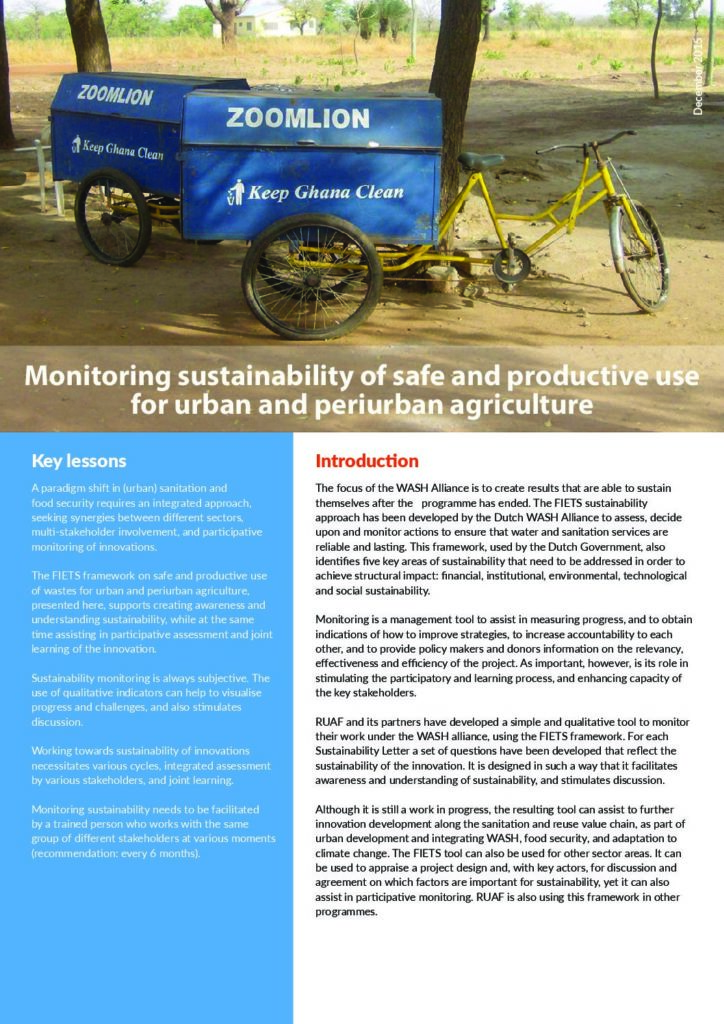This innovation brief on Monitoring sustainability of safe and productive use for urban and periurban agriculture was produced by the RUAF Foundation, International Network of Resource Centres on Urban Agriculture and Food Security, with support from WASTE, and as part of the WASH Alliance International, funded by the Dutch Government.
Key lessons
- A paradigm shift in (urban) sanitation and food security requires an integrated approach, seeking synergies between different sectors, multi-stakeholder involvement, and participative monitoring of innovations.
- The FIETS framework on safe and productive use of wastes for urban and periurban agriculture,
presented here, supports creating awareness and understanding sustainability, while at the same
time assisting in participative assessment and joint learning of the innovation. - Sustainability monitoring is always subjective. The use of qualitative indicators can help to visualise progress and challenges, and also stimulates discussion.
- Working towards sustainability of innovations necessitates various cycles, integrated assessment
by various stakeholders, and joint learning. - Monitoring sustainability needs to be facilitated by a trained person who works with the same
group of different stakeholders at various moments (recommendation: every 6 months).

